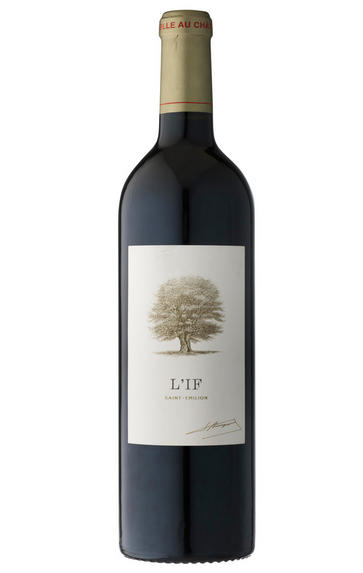
2021 L'If, St Emilion, Bordeaux
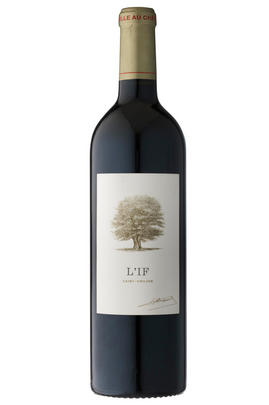
Critics reviews
13.5% alcohol
The 2021 L'If was picked October 2–16 and sees a higher proportion of Cabernet Franc (21%), as new plantings from a massal selection from Pavie-Macquin enter the Grand Vin. For the first time, I think L'If matches Le Pin pound for pound. Exuberant yet well-defined red fruit soars from the glass along with touches of shell, subtle estuarine aromas and so forth. The palate is medium-bodied with perhaps a little more concentration than its aforementioned stablemate, with hints of blue fruit and iodine emerging toward the finish. The Cabernet really adds something to the blend here, and it will be fascinating to watch this evolve. (13.5% alcohol).
Drink 2028 - 2050
Neil Martin, Vinous.com (May 2022)
The 2021 L'If is super-impressive right out of the gate. A high percentage of Cabernet Franc (21%) along with the introduction of 400-litre barrels yields an If that is marked by a striking interplay of richness and breadth allied to a palpable sense of energy. Dark cherry, cloves, leather, crushed rocks, rose petal and blood orange are some of the myriad aromas and flavours that develop with a little coaxing. The 2021 is a deeply intriguing wine. I can't wait to see how it ages. Tasted two times.
Drink 2031 - 2061
Antonio Galloni, Vinous.com (May 2022)
A blend of 79% Merlot and 21% Cabernet Franc, the 2021 L'If shows considerable potential, and if it evolves as well as I suspect it will during élevage, it may make my score seem conservative. Offering up aromas of dark berries and plums mingled with loamy soil, black truffles and sweet forest floor, it's medium to full-bodied, layered and seamless, with velvety tannins and a bright spine of acidity, concluding with a long, saline finish.
The core of L'If, amounting to some five hectares, is located around the château itself, just below Troplong-Mondot, complemented by two hectares near Lassegue and another hectare in cooler Saint-Étienne-de-Lisse. Out of this eight-hectare patchwork, four have been replanted in the last decade, with superior vine genetics and at higher densities. Today, soil studies inform a precise assemblage, focusing on the best clays, and L'If is really developing a strong identity.
Tasting through all the vintages produced to date with Cyrille Thienpont, who oversees this project, he described the 2012 blend as "beginner's luck," foreshadowing what was achieved in 2015, and from 2017 on. Fleshy, enveloping and refined, with plenty of perfume and texture, the estate's style is becoming very compelling, and it is front-and-center in the 2021 vintage.
William Kelley, Wine Advocate (April 2022)
79% Merlot, 21% Cabernet Franc. Cask sample.
Smoky, dark-fruit notes with a hint of morello cherry. Juicy, sweet and aromatic on the palate, the tannins are fine. Tightens on the finish to give a bit of length. Shows dynamism. Promising.
Drink 2028 - 2038
James Lawther MW, JancisRobinson.com (May 2022)
79% Merlot and 21% Cabernet Franc.
A serious and saline red with blue fruit, cloves, iodine and black liquorice. Oyster shells, too. Medium to full-bodied with fine, firm tannins that run the length of the wine. Focused.
James Suckling, JamesSuckling.com (June 2022)
Fragrant black cherries with dark chocolate. It smells so beautifully scented with juniper, plum and damson. Bright and characterful, sleek and suave on the palate, fresh and fruity, filling the mouth with mouthwatering juice. I love the minerality - saline, iodine, graphite, wet stone and pencil lead flavours with a chalky feel. It has an expansive but gentle character in the mouth, not massively weighty but a good push of flavour. A touch of austerity comes into play but this maintains direction with tension and clarity. Well worked and graceful, if a little compact right now. Lots of promise.
Drink 2026 - 2036
Georgina Hindle, Decanter.com (April 2022)
From the team at Le Pin, the 2021 Château L'If comes from an 8-hectare parcel near Troplong Mondot that was planted in 2010. A blend of 79% Merlot and 21% Cabernet Franc resting in 50% new barrels, it has a medium-bodied, elegant, yet concentrated profile as well as notes of ripe cherries, darker raspberries, chalky minerality, and spring flowers. The tannins here are top-notch, and it has good mid-palate depth and a great finish. A gem of a wine, it can be hard to find in the market, but it's worth tracking down.
Jeb Dunnuck, JebDunnuck.com (June 2022)
About this WINE
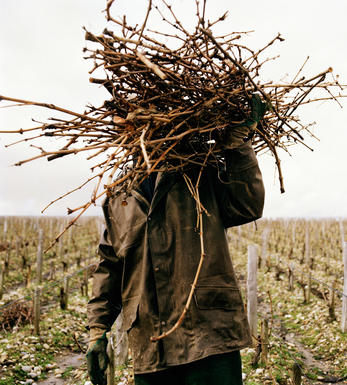
L'If
Located in the St Émilion appellation, which is renowned for its limestone-rich soils, L'If is owned by Jacques Thienpont, the owner of Château Le Pin, another highly esteemed Bordeaux estate. The estate is relatively new, established in 2006, and is situated on a small, 3.5-hectare vineyard.
The vineyard is planted with a mix of Merlot, Cabernet Franc, and Cabernet Sauvignon grapes, with an emphasis on Merlot. L'If follows a traditional winemaking approach, focusing on minimal intervention and allowing the grapes to express their natural characteristics. The grapes are hand-harvested and carefully sorted before fermentation. The wines are aged in French oak barrels, which adds complexity and structure to the final product.
L'If produces a limited range of wines, including a flagship red wine made from a blend of Merlot and Cabernet Franc grapes, typically displaying rich fruit flavours, fine tannins, and a long, lingering finish.
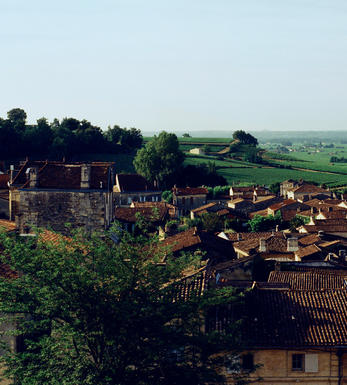
St Émilion
St Émilion is one of Bordeaux's largest producing appellations, producing more wine than Listrac, Moulis, St Estèphe, Pauillac, St Julien and Margaux put together. St Emilion has been producing wine for longer than the Médoc but its lack of accessibility to Bordeaux's port and market-restricted exports to mainland Europe meant the region initially did not enjoy the commercial success that funded the great châteaux of the Left Bank.
St Émilion itself is the prettiest of Bordeaux's wine towns, perched on top of the steep limestone slopes upon which many of the region's finest vineyards are situated. However, more than half of the appellation's vineyards lie on the plain between the town and the Dordogne River on sandy, alluvial soils with a sprinkling of gravel.
Further diversity is added by a small, complex gravel bed to the north-east of the region on the border with Pomerol. Atypically for St Émilion, this allows Cabernet Franc and, to a lesser extent, Cabernet Sauvignon to prosper and defines the personality of the great wines such as Ch. Cheval Blanc.
In the early 1990s there was an explosion of experimentation and evolution, leading to the rise of the garagistes, producers of deeply-concentrated wines made in very small quantities and offered at high prices. The appellation is also surrounded by four satellite appellations, Montagne, Lussac, Puisseguin and St. Georges, which enjoy a family similarity but not the complexity of the best wines.
St Émilion was first officially classified in 1954, and is the most meritocratic classification system in Bordeaux, as it is regularly amended. The most recent revision of the classification was in 2012
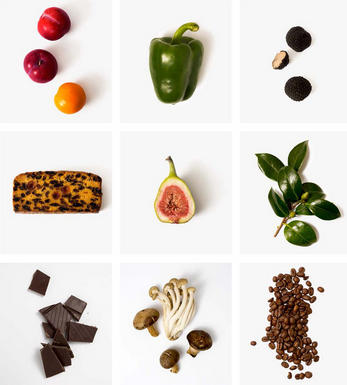
Merlot
The most widely planted grape in Bordeaux and a grape that has been on a relentless expansion drive throughout the world in the last decade. Merlot is adaptable to most soils and is relatively simple to cultivate. It is a vigorous naturally high yielding grape that requires savage pruning - over-cropped Merlot-based wines are dilute and bland. It is also vital to pick at optimum ripeness as Merlot can quickly lose its varietal characteristics if harvested overripe.
In St.Emilion and Pomerol it withstands the moist clay rich soils far better than Cabernet grapes, and at it best produces opulently rich, plummy clarets with succulent fruitcake-like nuances. Le Pin, Pétrus and Clinet are examples of hedonistically rich Merlot wines at their very best. It also plays a key supporting role in filling out the middle palate of the Cabernet-dominated wines of the Médoc and Graves.
Merlot is now grown in virtually all wine growing countries and is particularly successful in California, Chile and Northern Italy.


Buying options
Add to wishlist
Description
13.5% alcohol
The 2021 L'If was picked October 2–16 and sees a higher proportion of Cabernet Franc (21%), as new plantings from a massal selection from Pavie-Macquin enter the Grand Vin. For the first time, I think L'If matches Le Pin pound for pound. Exuberant yet well-defined red fruit soars from the glass along with touches of shell, subtle estuarine aromas and so forth. The palate is medium-bodied with perhaps a little more concentration than its aforementioned stablemate, with hints of blue fruit and iodine emerging toward the finish. The Cabernet really adds something to the blend here, and it will be fascinating to watch this evolve. (13.5% alcohol).
Drink 2028 - 2050
Neil Martin, Vinous.com (May 2022)
wine at a glance
Delivery and quality guarantee